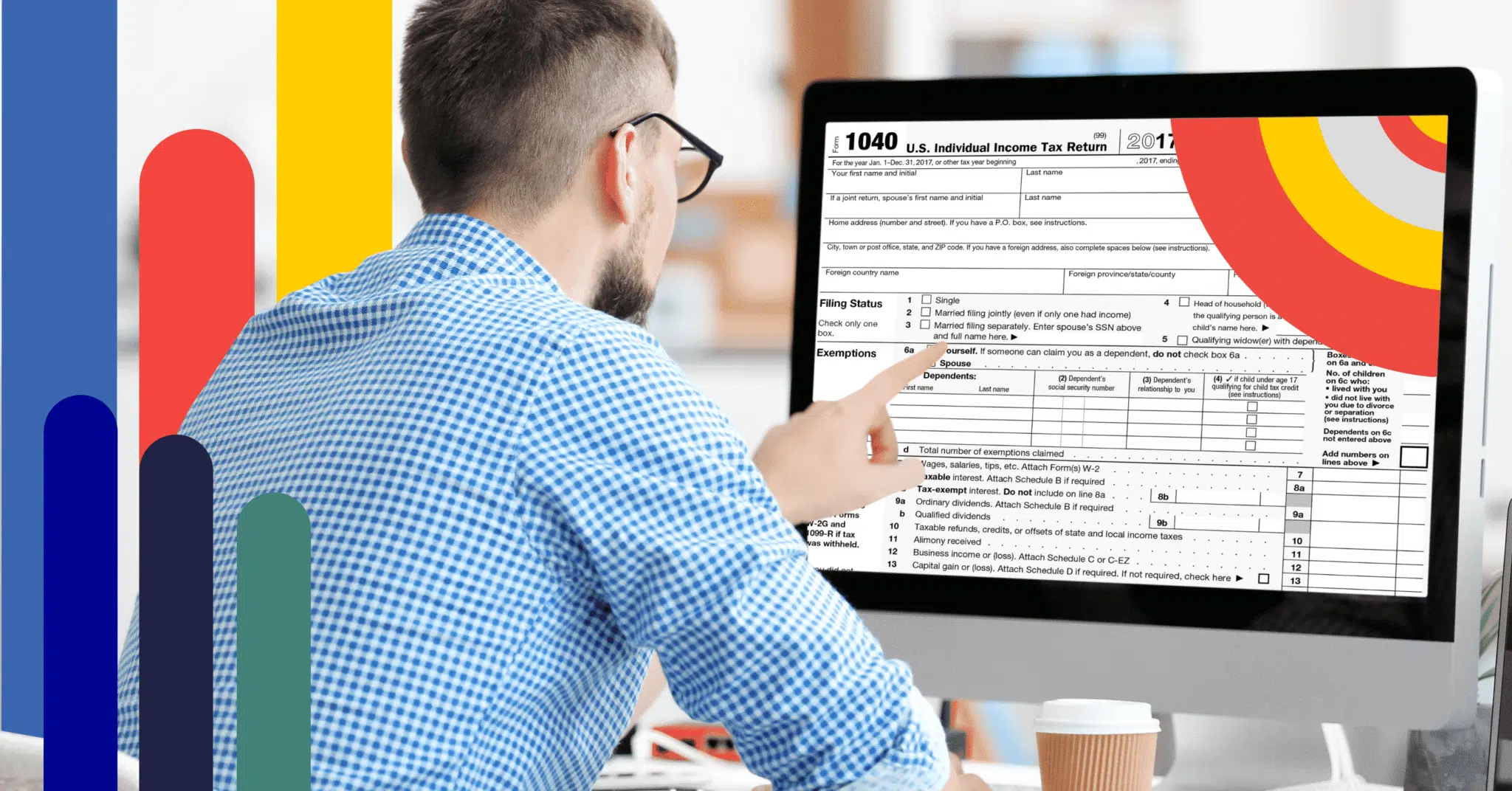Is Mortgage Interest Tax-Deductible in Canada

Table of contents
Depending on how you use your property, your mortgage interest can be considered a tax-deductible expense in some situations. Whether you’re just living in your property, renting out all or part of it, or running a business from home, we’ll help you understand the ins and outs of reclaiming your mortgage interest in Canada.
Skip reading, watch and learn about all things mortgage broker below 👇
Key Takeaways
- Mortgage interest payments are tax-deductible in specific situations
- If you use your home as a rental property, or you run a business from a designated area of your home, you may be able to claim some of your mortgage interest back
- You may also be able to claim back some of the fees associated with your mortgage
Are you a first-time buyer?
Is mortgage interest tax-deductible in Canada?
There are basically two ways to look at writing off mortgage interest payments from a tax standpoint, and these depend on what your property is being used for. Throughout this post, we will be focusing on the following scenarios:
The property is generating rental income.
The Canadian government’s guidelines suggest that tax deductions can only be made on mortgage interest payments when the property is used to generate rental income. When your mortgage interest is considered part of your operating cost for a rental property, you can claim back all, or a portion of, the interest.
The property is a primary residence.
For mortgage interest on a primary residence, however, it gets a bit more complicated. Generally, mortgage interest for primary residences is not considered tax-deductible in Canada – even where part of your house is used to run a small business. However, using a strategy like the Smith Maneuver, you could effectively make interest on a residential mortgage.
Is it common to use a mortgage for income tax deductions?
If your mortgage was used to purchase a rental property, then it makes sense to claim back the interest in your tax return each year. This is a common, yet sometimes overlooked expense that landlords can write off in their taxes.
However, when we’re talking about using a mortgage for income tax deductions in a residential context, it’s a little less common. Since it isn’t legal to just claim back your mortgage interest on a primary residency, most homeowners don’t (and shouldn’t) do it. However, households who use a technique like the Smith Maneuver are able to essentially write off their mortgage interest payments.
How much mortgage interest is tax deductible?
The official line of the Canadian government is that you can deduct the interest you pay on any money you borrow to buy or improve a rental property. If you rent out your property for the entire year, then the total amount of interest on your mortgage is tax deductible. If you only rent it out for a portion of the year, then only that period (e.g. 4 months) of interest payments is tax deductible.
It ultimately depends on both the proportion of the space rented out, and the length of time said space is generating rental income. Here’s a table to help break it down for you:
| Size of space, time rented | Amount of mortgage interest that’s tax deductible |
| Whole property, whole year | 100% |
| Whole property, part of the year | 100% of the interest payments for the time the property was rented out (e.g. 4 months = 4/12, or 1/3 of your total yearly interest) |
| Part of the property (e.g. basement suite, or a single room), whole year | % total square footage x 12 months. (e.g. a 500 sqft. Basement suite rented for one year in a 1500 sqft home = ⅓ total property space, and therefore ⅓ total yearly mortgage interest is tax deductible. |
| Part of the property (e.g. basement suite, or a single room), part of the year | % total square footage x time rented. E.g. 500 sqft basement in a 1500 sqft home, rented for 2 months, = ⅓ total interest payment for only those 2 months of the year is tax deductible. |
As a final note, according to the government of Canada, you cannot deduct in full any lump-sum amount paid in interest. Instead, you would prorate the amount for the remainder of the term of your mortgage or loan. In other words, you spread out the amount you paid in interest in one year over the course of the rest of your mortgage term.
Mortgage fees to claim when you purchase or improve a rental property
According to the government of Canada, you can also claim some of the fees associated with money you’ve borrowed to purchase or improve a rental property, including:
- Mortgage applications, appraisals, processing, and insurance fees
- Mortgage guarantee fees
- Mortgage brokerage and finder’s fees
- Legal fees related to mortgage financing
It’s also worth mentioning that if the money you borrow for a rental property relates to construction or renovation, these are called ‘soft costs’, and some of these are also deductible. Soft costs for the period of construction, renovation, or alteration of a property used for rental income include:
- Interest
- Legal fees
- Accounting fees
- property taxes
Can you write off mortgage interest if you’re working from home?
If you work from home, you can write off various expenses associated with your home office, as long as your home office qualifies for tax deductions. The amount you can write off depends on the size of your work space. For example, if your home office makes up 5% of your space, you can claim 5% of your mortgage interest, insurance or property tax.
Frequently Asked Questions
Is mortgage interest tax-deductible for rental income?
Yes, if you’re using your property to generate rental income. In this case, since your mortgage interest is considered part of your operating cost for a rental property, you can claim back all, or a portion of, the interest.
Can you write off mortgage interest when working from home?
If your home is your primary place of business, or you use a specific space in your home solely for business purposes (such as a private salon or an accounting office), you can deduct mortgage interest – but only up to the amount of space used each month (see the table above). Let’s say you ran a laser hair removal business in your basement, and only used the basement for that purpose. If your basement is 20% of the total square footage of your property and you ran your business full-time for a whole year, you could reclaim up to 20% of your total mortgage interest payments, depending on how many days each month you were using the space for your business.
Note: this only applies when you run your own business from home. If you’re working for an employer and work from home, mortgage interest is not tax-deductible.
What happens after you sell your house?
If you sell your home after you’ve brought in income from your home, either by using it as an investment property, or from running your business, there is one thing to keep in mind: capital gains tax. Capital gains is a tax you pay on the profits that your home has generated since it started producing income. This only applies if you turned your primary residence into an investment property, however, if you do sell your home, you still have to disclose the sale to the CRA, regardless of whether you used your home as an investment property or not.
Conclusion
Ultimately, making sure you are on the right side of the law when writing off any expenses for tax purposes is key. While we’ve endeavored to give you the most accurate information possible on whether mortgage interest is tax-deductible, make sure you speak to a legal professional before committing to write off any of your expenses. Check that you fully understand your situation, particularly how you’ll be using the property your mortgage is paying for, as this will determine exactly how much of your interest is tax-deductible. Generally, mortgage interest is only tax-deductible if you’re bringing in income from renting out your home, or from running your own business. To learn more about how you can essentially write off your mortgage interest for a purely residential property, check out our post on The Smith Maneuver, or speak to a nesto advisor.
Ready to get started?
In just a few clicks, you can see our current rates. Then apply for your mortgage online in minutes!
















